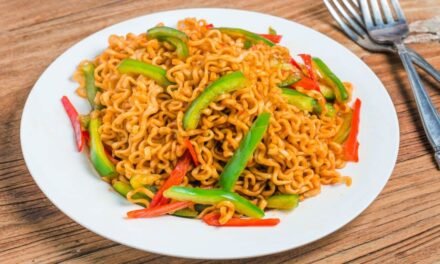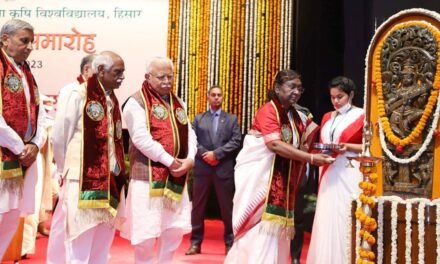Brand Parle remains a brand that is loved and favoured by all, its products hold a special place in Indian food business. Rajat K Baisya examines this pattern through the history of Parle, from its beginnings to the diverse paths of Parle Exports, Parle Beverages, Bisleri, and Parle Agro.
Explore the Parle brand’s legacy, from its roots in Indian family entrepreneurship to business succession conflicts and the rivalry between Bisleri and Parle Agro. Discover insights on family business dynamics, Nadia Chauhan’s leadership, and iconic Indian FMCG brands.
Long ago, FICCI did a survey on Indian family-owned businesses. That survey showed an interesting result: the first-generation entrepreneur struggles, sacrifices, leads a frugal lifestyle and works very hard, pursuing business objectives with single-minded focus. They painstakingly develop businesses with a solid foundation, which helps the second generation to enjoy a more luxurious lifestyle, often pursuing their own passions, even if it means divesting or selling business units. Eventually, this often leads to a third-generation disintegration, a common trend in family-owned business succession.
United Breweries: A Case of Business Generational Shift
A classic example in front of us is the Indian business legacy of United Breweries Group, created by Late Vittal Mallya, for whom I worked. He passed away at the young age of 53 but was able to build a highly diversified and cash-rich business empire, including beer, spirits, pharmaceuticals, and food. United Breweries controlled nearly 50% of the market in these segments. This is a remarkable case of a business generational shift.
However, his only son, Vijay Mallya, for whom I also worked, took over at the age of 29. Despite his early start, he eventually lost control, an example of Vijay Mallya’s business losses. The beer business was acquired by Heineken (United Breweries Heineken acquisition), the spirit business by Diageo, and the food business by Hindustan Unilever.
Family business conflicts are frequently observed in the second generation. These stem from power struggles, differing visions, control issues, independence, and personal interests. If not resolved early, such problems lead to succession planning challenges, resulting in inevitable splits. This has happened recently in the Godrej family as well.
Most family-owned businesses are also seen to split in the second generation. The reasons are many, including power, control, independence, a difference of opinion, disharmony amongst family members, too many family members eyeing better-performing business units, differences in their approach, style of functioning, and personal interests, misunderstanding, and so on.
Family business conflicts are frequently observed in the second generation. These stem from power struggles, differing visions, control issues, independence, and personal interests. If not resolved early, such issues lead to succession planning challenges, resulting in inevitable splits. This has happened recently in the Godrej family as well.
It always starts from small issues initially, and if not handled, diffused, and controlled in time, it ultimately brings the family into a stage where separation or division of business becomes inevitable. Sometimes, the situation also forces such divisions in family-owned businesses.
Parle Brand History: A Foundation in Indian FMCG Brands
In this issue of PFI, I will trace a brief Parle brand history. Parle Exports, Parle Beverages, Bisleri, and Parle Agro all have their association with the parent company. Later on, they all went ahead charting their own businesses having separate owner-ship. In this issue, we will discuss Parle Agro, owned by Prakash Chauhan.
Parle Products was founded in 1929 by Mohanlal Chauhan, who hailed from Pardi near Valsad in Gujarat. He moved to Mumbai to make a living, and at first, his profession was tailoring. Subsequently, he started a confectionery and bakery business.
Started by Mohanlal Dayal Chauhan way back in 1929 at Vile-Parle, a Mumbai suburb, Parle Products first launched an orange candy and then other confectionery products before entering the biscuits segment ten years later. Mohanlal had five sons, Maneklal, Pitambar, Narottam, Kantilal, and Jayantilal. All were quite invested in their father’s business and helped him in operating the family business.
Kantilal had three sons, Vijay, Sharad, and Raj Chauhan, who took over the control of Parle Products, which has a net worth of USD 5.5 billion. But I would like to cover that story separately.

Parle Agro and Bisleri: Separate Ventures
The youngest son, Jayantilal Chauhan, had two sons: Ramesh and Prakash Chauhan. This family line gave birth to Parle Agro, led by Prakash Chauhan and his daughters, and Parle Bisleri, led by Ramesh Chauhan and his daughter, Jyanti. Both daughters now play active roles, marking a strong example of Indian women in business leadership.
Under their leadership, they developed iconic beverage brands like Citra, Thums Up, Limca, Gold Spot, and Maaza, solidifying their place in Thums Up history and the wider Indian soft drink segment. These brands were sold to Coca-Cola in 1993 (Coca-Cola and Parle deal) for $40 million. At the time, Parle held 60% of the Indian carbonated soft drink market.
Chauhan Family Split: A Generational Shift in Business Control
Post-divestment, the brothers split. Ramesh retained Bisleri, and Prakash continued with Parle Agro. In 1985, Prakash launched Frooti, India’s first tetra-pack mango drink, a true Frooti success story. His daughter, Nadia Chauhan, joined in 2003, becoming a pivotal figure in company growth and Nadia Chauhan’s leadership success. She launched Appy Fizz, India’s first packaged NimbooPani, and introduced several innovations.
The sales in the year 2022-2023 was around Rs 8000 crores, according to Business Today. In 2005, Parle Agro launched Appy Fizz. That idea was a runaway success. Nadia was instrumental in that launch. She also innovated and helped the company introduce other products. She launched India’s first packaged NimbooPani. Subsequently, her sister Sachauna also joined the business.
According to Business Today, Frooti’s contribution to the business has come down now to 48 per cent. The company’s packaged drinking water, Bailey, became a Rs 1000 crore business. Parle Beverages projects to reach a sales revenue of Rs 20000 crores by 2030.
- Food Safety Failures in India: Regulatory Gaps, Adulteration Trends, and the Way Forward
- The Indian Ice Cream Industry: Brands, Trends & Opportunities
- India UAE Agrifood Trade: An Expanding Strategic Relationship
- Sustainability Challenges for Food Industry: From Supply Chains to Consumers
- Top 10 Dairy Companies in India and Their Leading Milk Brands
Bisleri vs Bailey: Sibling Rivalry in the Bottled Water Market in India
The original Chauhan family broke up the Parle corporation into three separate businesses, with Parle Agro Products controlling the majority of them. As per The Times of India report, in reality, Jayantilal only separated from his four older brothers. The key factor was that Jayantilal led a different lifestyle than his four older brothers.
The four older brothers each received a portion of the biscuits-confectionary company, and they remained together as a unit to this day. The beverage part was Jayantilal’s share. His two sons divided this portion even further in later years. Parle Agro began around the 1960s, led by Prakash Jayantilal Chauhan, the younger son of Jayantilal Chauhan. The company is now headed by his daughters Schauna, Alisha, and Nadia, who look after beverages like Appy and Frooti and bottled water Bailey.
Bisleri is also under Parle and is led by Ramesh Jayantilal Chauhan, elder son of Jayantilal. He runs it with his wife, Zainab Chauhan, and their only daughter, Jayanti Chauhan, who has taken over as the Vice-Chairman. A deep dive into Bisleri’s rise as a market leader can be found in PFI’s article Bottled Water Industry: Story of the Market Leader ‘Bisleri’
Prakash Chauhan launched the bottled drinking water Bailey in 1993, which was in direct competition with his brother, who owned India’s largest bottled water brand, Bisleri. Bisleri, launched in 1969, has over 30% market share in the category in India, registering sales of around Rs 3000 crores, whereas Bailey’s sales revenue is said to be around Rs 1000 crores. Bisleri and Bailey are competitors in the market. Two brothers are now rivals in business.
Brand Parle remains a brand that is loved and favoured by all, its products hold a special place in the hearts of every Indian. In the food business, Parle brands are household names. The Chauhan family created this huge business in highly competitive categories, fighting multinational brands. It is a huge success story. However, business is now under the control of the third generation, and we have to see how the future story will gradually unfold.
Parle Agro Industries: FAQs
The Parle brand was originally founded by Mohanlal Chauhan and later split among his sons. Jayantilal Chauhan received the beverage division, which was further divided between his sons, Ramesh and Prakash Chauhan. This led to the creation of separate companies like Parle Agro and Bisleri.
In 1993, Ramesh and Prakash Chauhan sold several Parle beverage brands—including Thums Up, Limca, and Maaza—to Coca-Cola for $40 million. This was done to exit the competitive soft drink market and focus on other business ventures.
Parle Agro is currently owned and managed by Prakash Chauhan and his three daughters, Nadia, Schauna, and Alisha Chauhan. Nadia Chauhan, in particular, has been instrumental in launching new products and driving the company’s growth.
The split was due to internal family business succession issues between brothers Ramesh and Prakash Chauhan. Each took control of different parts of the beverage business—Ramesh took Bisleri, and Prakash led Parle Agro.
Frooti was launched in 1985 as India’s first tetra-pack mango drink. It played a significant role in establishing Parle Agro’s brand identity and continues to be a major revenue contributor, although its share has decreased as the company diversified.
Bisleri is the market leader in India’s bottled water segment, with over 30% market share and annual revenues of approximately Rs 3000 crores.
Common challenges include succession planning, generational conflicts, lifestyle differences, and a lack of unified business vision. These often lead to business splits and divestments, as seen in the cases of Parle, United Breweries, and the Godrej family.
Nadia Chauhan is the Chief Marketing Officer and Joint Managing Director of Parle Agro. She joined the company in 2003 and has led major innovations, including the launch of Appy Fizz and India’s first packaged NimbooPani.
Vijay Mallya inherited United Breweries from his father, Vittal Mallya. However, due to business and legal troubles, major assets were sold. Heineken acquired the beer business, Diageo took over the spirits division, and Hindustan Unilever acquired the food segment.
Parle’s story shows the importance of structured succession planning, maintaining brand integrity, and the value of adapting to market changes. It also highlights the potential success of women in leadership roles within traditional family businesses.
*Author is the chairman of Strategic Consulting Group and served as Professor and Head of the Dept. of Management Studies, IIT Delhi. He can be reacheded at rkbaisya @ hotmail.com
Have news or topic to share with industry? Write to us editorial@pfionline.com

















